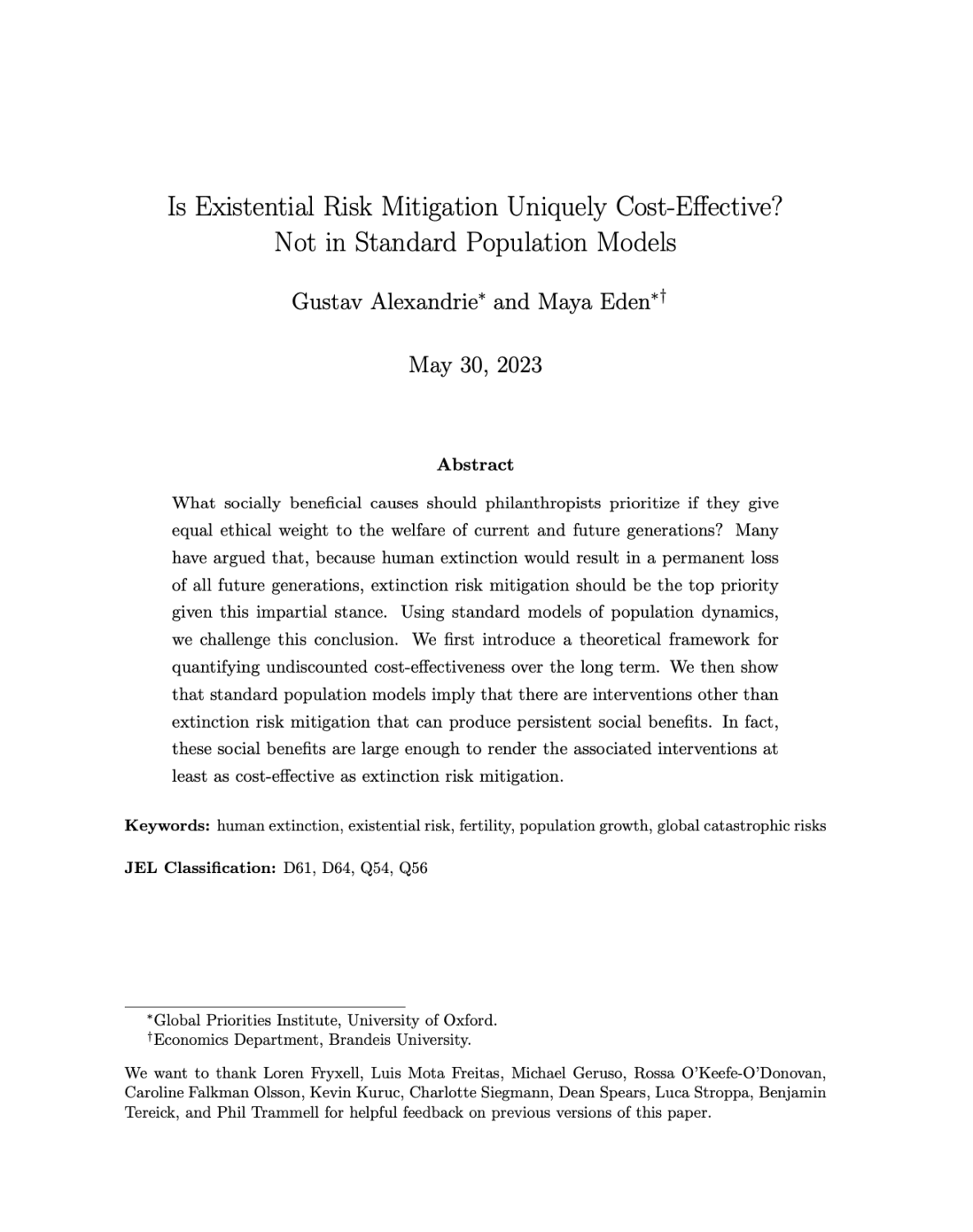Is Existential Risk Mitigation Uniquely Cost-Effective? Not in Standard Population Models
Gustav Alexandrie (Global Priorities Institute, University of Oxford) and Maya Eden (Brandeis University)
GPI Working Paper No. 5-2023
What socially beneficial causes should philanthropists prioritize if they give equal ethical weight to the welfare of current and future generations? Many have argued that, because human extinction would result in a permanent loss of all future generations, extinction risk mitigation should be the top priority given this impartial stance. Using standard models of population dynamics, we challenge this conclusion. We first introduce a theoretical framework for quantifying undiscounted cost-effectiveness over the long term. We then show that standard population models imply that there are interventions other than extinction risk mitigation that can produce persistent social benefits. In fact, these social benefits are large enough to render the associated interventions at least as cost-effective as extinction risk mitigation.
Other working papers
The structure of critical sets – Walter Bossert (University of Montreal), Susumu Cato (University of Tokyo) and Kohei Kamaga (Sophia University)
The purpose of this paper is to address some ambiguities and misunderstandings that appear in previous studies of population ethics. In particular, we examine the structure of intervals that are employed in assessing the value of adding people to an existing population. Our focus is on critical-band utilitarianism and critical-range utilitarianism, which are commonly-used population theories that employ intervals, and we show that some previously assumed equivalences are not true in general. The possible discrepancies can be…
The case for strong longtermism – Hilary Greaves and William MacAskill (Global Priorities Institute, University of Oxford)
A striking fact about the history of civilisation is just how early we are in it. There are 5000 years of recorded history behind us, but how many years are still to come? If we merely last as long as the typical mammalian species…
When should an effective altruist donate? – William MacAskill (Global Priorities Institute, Oxford University)
Effective altruism is the use of evidence and careful reasoning to work out how to maximize positive impact on others with a given unit of resources, and the taking of action on that basis. It’s a philosophy and a social movement that is gaining considerable steam in the philanthropic world. For example,…

